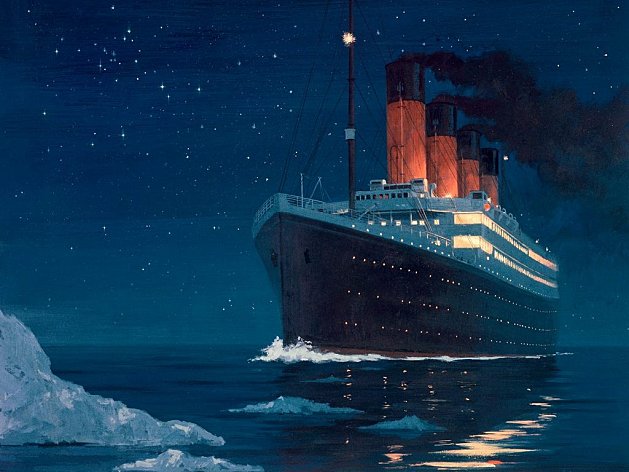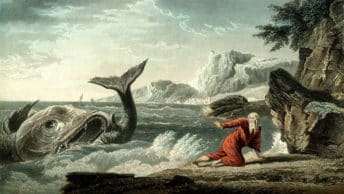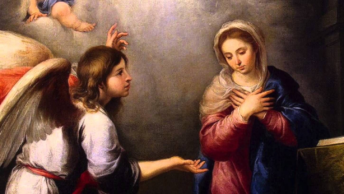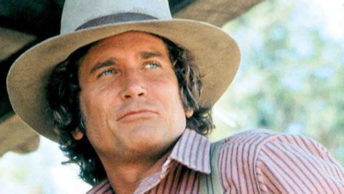On a cold April night, a giant ocean-liner—considered the safest ship ever built because of its state-of-the-art watertight compartments—struck an iceberg on its maiden journey across the Atlantic and sank with terrible loss of life. . . . If you think I’m talking about the sinking of the Titanic, which occurred exactly 100 years ago today, you’re mistaken. The details I’ve just mentioned were all part of a short novel written by an American author named Morgan Robertson, and published in 1898—fourteen years before his eerily accurate fictional story came true. Robertson came very close to predicting the size and length of the ship, the number of persons on board, the inadequate number of lifeboats, and the ship’s speed when it struck the iceberg. Most amazingly, he named his fictional ship the Titan—just two letters different from the real ship’s actual name (David Wallechinsky, Amy & Irving Wallace, The Book of Predictions, p. 390). Naturally, no one took the story seriously, and fourteen years later an imaginary tragedy became real.
Many 20th century disasters were imagined, warned of, or predicted in advance—only to be met by indecision, doubts, or disbelief. For instance, in 1972, when the World Trade Center was nearing completion, one expert warned that if ever there was a fire above the 65th floor, the towers would collapse—a tragic event that unfolded on live television on Sept. 11, 2001. During the Roaring Twenties, a few foresighted experts warned of a possible stock market collapse, but almost no one paid attention. In the early 1930s an admiral in the U.S. Navy proved that Pearl Harbor was highly vulnerable to a surprise air raid launched by enemy aircraft carriers—but nothing was done. A scholar used the prophecies of the 16th century seer Nostradamus to predict quite accurately the course of World War II, publishing his book in 1939—just months before the war broke out. Both President Lincoln and President Kennedy were warned of the danger of assassination, and these fears were realized. Also, there have been, and still are, many alleged prophecies in the realm of private revelation speaking of potential chastisements unless our nation turns back to God—but most people ignore them. Of course, there have also been numerous mistaken predictions and misguided warnings, so everything has to be taken with a grain of salt and subjected to prayerful discernment. Humanity’s track record, however, shows that regardless of the reliability of the prophet and the importance of the message, our natural inclination—or, we might say, our default setting—is one of doubt. Most people find it psychologically difficult, if not impossible, to believe something that would require them to make major changes in their outlook or behavior. For instance, if you had announced to the passengers embarking on the Titanic, “Don’t go! Your ship is in danger of sinking after hitting an iceberg—and in fact, there was even a story written about this fourteen years ago,” no one would have listened or taken you seriously. A refusal to believe often seems to be part of our human nature. That can cause much unnecessary suffering when it comes to worldly events, but doubt becomes truly tragic only if it keeps us from accepting our eternal destiny as children of God. The Risen Lord calls us to believe in Him and to accept Him as our God and Savior—and only if we do this can we be certain the story of our lives will have a happy ending.
St. Thomas doubted the other apostles when they insisted they had seen the Risen Lord, and in fact, there was actually nothing wrong with him being skeptical; according to St. Gregory the Great, “In a marvelous way God’s mercy arranged that the disbelieving disciple, in touching the wounds of his Master’s body, should heal our wounds of disbelief. The disbelief of Thomas has done more for our faith than the faith of the other disciples” (Breviary, Vol. III, p. 1517). Thomas doubted the words of other fallible human beings like himself, but he immediately abandoned his disbelief when he came face to face with his Lord and God. This, in fact, is a very wise approach for all of us to follow: a certain skepticism or reserve when it comes to worldly values and assertions, and a willingness to believe and change our lives accordingly in the face of divine revelation and unchanging truth.
One hundred years ago, most people believed in the inevitability of human progress and the unswerving forward march of civilization; they could not have imagined the horrors of World War I, which would break out just two years later, followed by the rise of totalitarianism, a still more disastrous war, the Nazi holocaust, the invention of nuclear weapons, ever-growing terrorism, widespread religious persecution, and many other tragedies which would make the 20th century the bloodiest era in human history. We may shake our heads over the naïveté and lack of sophistication of the people back then—but are we really much better? So many people today, if not actual atheists, live as if God doesn’t exist, and instead seem to believe that science and technology will be able to solve all our problems, that big government deserves our allegiance and servitude in exchange for meeting all our most important material and social needs, and that the measure of a happy and successful life is wealth, leisure, and entertainment. Moral and spiritual truths, on the other hand, are met with disbelief or indifference—especially when presented by organized religion, and particularly by the Catholic Church. History shows this worldview to be exactly backwards: God’s word has proven to be utterly reliable, again and again, but worldly values and human societies and governments always end up failing and disappointing those who place their trust and hopes in them.
St. Thomas the Apostle should perhaps be the patron saint of the early 21st century, for in his questioning nature he demonstrates an approach that would serve us well: skepticism toward the claims of fellow human beings, and heartfelt faith in the presence of Divine Truth. As the Titanic was sinking, the orchestra continued playing on deck in order to calm the panicked passengers, and one of the pieces they performed was “Nearer My God to Thee.” Undoubtedly many of the almost 1500 people who died that night came closer to God, crying out for His forgiveness and help—and the Lord in His mercy surely allowed their tragic deaths to become instead an entry into a glorious eternal life. We shouldn’t need an imminent disaster or the prospect of immediate death to make us profess our faith; instead, we should live all our days, no matter how safe, uneventful, or routine, in a way that proclaims to Jesus, “My Lord and my God!”








